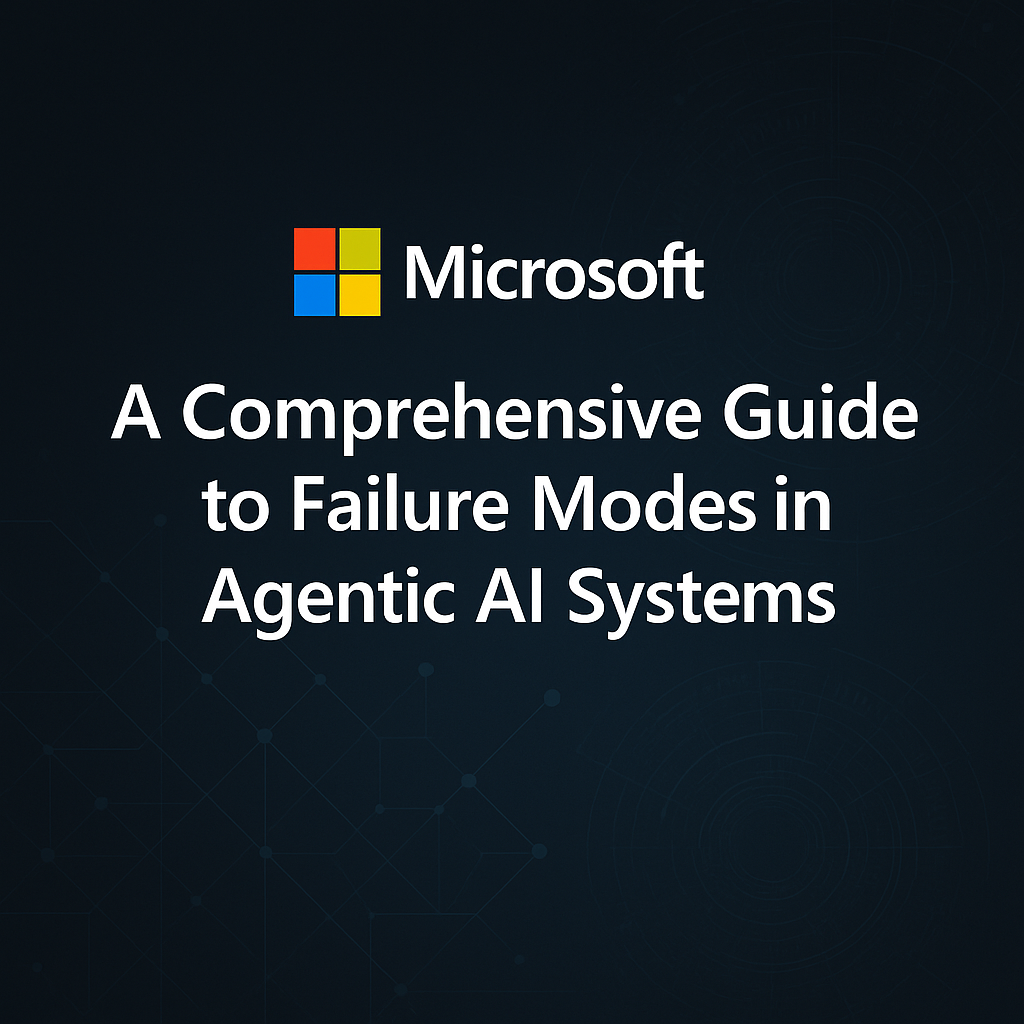
As agentic AI systems evolve, the complexity of ensuring their reliability, security, and safety grows correspondingly. Recognizing this, Microsoft’s AI Red Team (AIRT) has published a detailed taxonomy addressing the failure modes inherent to agentic architectures. This report provides a critical foundation for practitioners aiming to design and maintain resilient agentic systems.
Characterizing Agentic AI and Emerging Challenges
Agentic AI systems are defined as autonomous entities that observe and act upon their environment to achieve predefined objectives. These systems typically integrate capabilities such as autonomy, environment observation, environment interaction, memory, and collaboration. While these features enhance functionality, they also introduce a broader attack surface and new safety concerns.
To inform their taxonomy, Microsoft’s AI Red Team conducted interviews with external practitioners, collaborated across internal research groups, and leveraged operational experience in testing generative AI systems. The result is a structured analysis that distinguishes between novel failure modes unique to agentic systems and the amplification of risks already observed in generative AI contexts.
A Framework for Failure Modes
Microsoft categorizes failure modes across two dimensions: security and safety, each comprising both novel and existing types.
- Novel Security Failures: Including agent compromise, agent injection, agent impersonation, agent flow manipulation, and multi-agent jailbreaks.
- Novel Safety Failures: Covering issues such as intra-agent Responsible AI (RAI) concerns, biases in resource allocation among multiple users, organizational knowledge degradation, and prioritization risks impacting user safety.
- Existing Security Failures: Encompassing memory poisoning, cross-domain prompt injection (XPIA), human-in-the-loop bypass vulnerabilities, incorrect permissions management, and insufficient isolation.
- Existing Safety Failures: Highlighting risks like bias amplification, hallucinations, misinterpretation of instructions, and a lack of sufficient transparency for meaningful user consent.
Each failure mode is detailed with its description, potential impacts, where it is likely to occur, and illustrative examples.
Consequences of Failure in Agentic Systems
The report identifies several systemic effects of these failures:
- Agent Misalignment: Deviations from intended user or system goals.
- Agent Action Abuse: Malicious exploitation of agent capabilities.
- Service Disruption: Denial of intended functionality.
- Incorrect Decision-Making: Faulty outputs caused by compromised processes.
- Erosion of User Trust: Loss of user confidence due to system unpredictability.
- Environmental Spillover: Effects extending beyond intended operational boundaries.
- Knowledge Loss: Organizational or societal degradation of critical knowledge due to overreliance on agents.
Mitigation Strategies for Agentic AI Systems
The taxonomy is accompanied by a set of design considerations aimed at mitigating identified risks:
- Identity Management: Assigning unique identifiers and granular roles to each agent.
- Memory Hardening: Implementing trust boundaries for memory access and rigorous monitoring.
- Control Flow Regulation: Deterministically governing the execution paths of agent workflows.
- Environment Isolation: Restricting agent interaction to predefined environmental boundaries.
- Transparent UX Design: Ensuring users can provide informed consent based on clear system behavior.
- Logging and Monitoring: Capturing auditable logs to enable post-incident analysis and real-time threat detection.
- XPIA Defense: Minimizing reliance on external untrusted data sources and separating data from executable content.
These practices emphasize architectural foresight and operational discipline to maintain system integrity.
Case Study: Memory Poisoning Attack on an Agentic Email Assistant
Microsoft’s report includes a case study demonstrating a memory poisoning attack against an AI email assistant implemented using LangChain, LangGraph, and GPT-4o. The assistant, tasked with email management, utilized a RAG-based memory system.
An adversary introduced poisoned content via a benign-looking email, exploiting the assistant’s autonomous memory update mechanism. The agent was induced to forward sensitive internal communications to an unauthorized external address. Initial testing showed a 40% success rate, which increased to over 80% after modifying the assistant’s prompt to prioritize memory recall.
This case illustrates the critical need for authenticated memorization, contextual validation of memory content, and consistent memory retrieval protocols.
Conclusion: Toward Secure and Reliable Agentic Systems
Microsoft’s taxonomy provides a rigorous framework for anticipating and mitigating failure in agentic AI systems. As the deployment of autonomous AI agents becomes more widespread, systematic approaches to identifying and addressing security and safety risks will be vital.
Developers and architects must embed security and responsible AI principles deeply within agentic system design. Proactive attention to failure modes, coupled with disciplined operational practices, will be necessary to ensure that agentic AI systems achieve their intended outcomes without introducing unacceptable risks.
Check out the Guide. Also, don’t forget to follow us on Twitter and join our Telegram Channel and LinkedIn Group. Don’t Forget to join our 90k+ ML SubReddit.
Sana Hassan, a consulting intern at Marktechpost and dual-degree student at IIT Madras, is passionate about applying technology and AI to address real-world challenges. With a keen interest in solving practical problems, he brings a fresh perspective to the intersection of AI and real-life solutions.





